Here's the best career advice for college graduates from business leaders like Apple's Tim Cook and GM's Mary Barra speaking at this year's commencement ceremonies
Sarah Jackson

- It's graduation season again for colleges across the country.
- Per tradition, many influential figures are sharing advice in commencement speeches across the country.
Apple CEO Tim Cook talked about personal fulfillment while addressing students at Gallaudet University, a private university in Washington, D.C., for deaf, blind, and hard of hearing students.
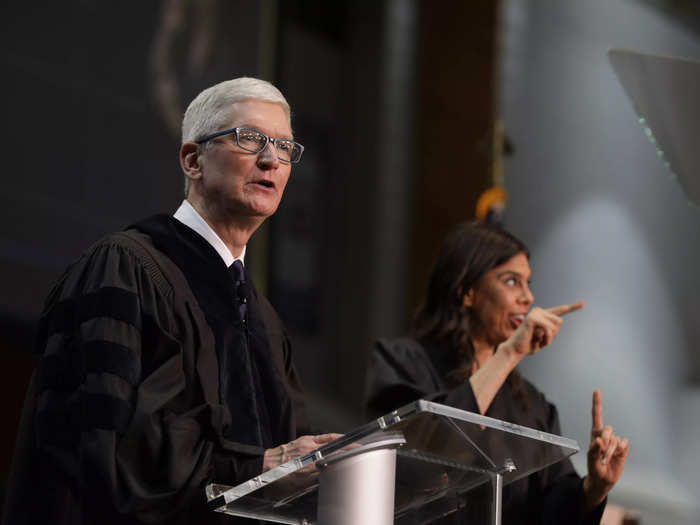
"What does it take to build a life that provides meaning and fulfillment? The thing about it is that no one can answer that question for you, and that includes me," Cook said. "There is no iPhone feature that can come to the rescue. AI is good, but it's not that good."
Cook continued: "I have one important piece of advice I want to share, so important that it's the only piece of advice I'm going to share today. And that is this: whatever you do, lead with your values. By leading with your values, what I mean is that you should make decisions big and small, each and every day, based on a deep understanding of who you are and what you believe."
In March, the Apple TV+ film "CODA," which is about a child of deaf adults, won the Oscar for Best Picture.
General Motors CEO Mary Barra summed up her advice in five points for graduates of North Carolina's Duke University.
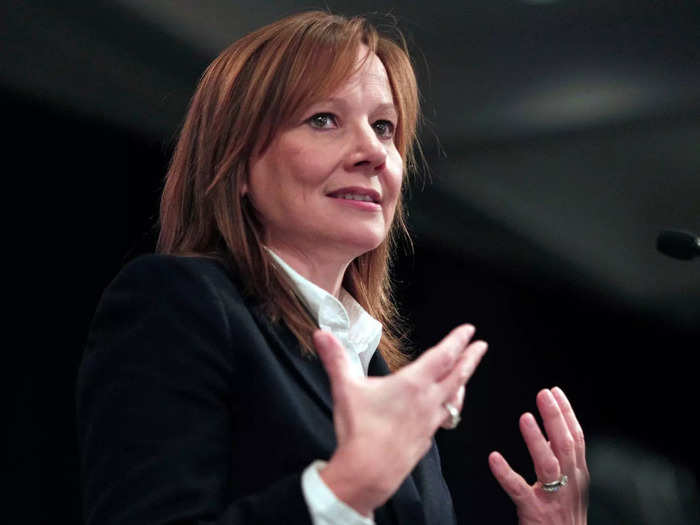
Barra's first point was to do your best.
"Speak up, volunteer, contribute, and when people need help, don't look the other way. It is the amount of effort you put in that will enable you to accomplish more than you ever imagined," she said.
Second, Barra talked about finding your purpose.
"Treat it as your north star. You may veer on occasion, but you'll find your way back," she said.
Barra next spoke about the importance of listening to others.
"Listening is foundational to everything. And not just listening to respond or defend, but listening to understand," she said.
In her fourth point, Barra stressed always being honest.
"Your integrity is everything. It takes years to build and can crumble in a moment. Once it's gone, it's almost impossible to get back. So, protect it in everything you do," she said.
Lastly, Barra talked about inclusivity, saying, "Possibly the most important lesson I learned — include one more. Make room at the table."
LinkedIn cofounder Reid Hoffman focused on friendship in his commencement speech at Vanderbilt University in Tennessee.
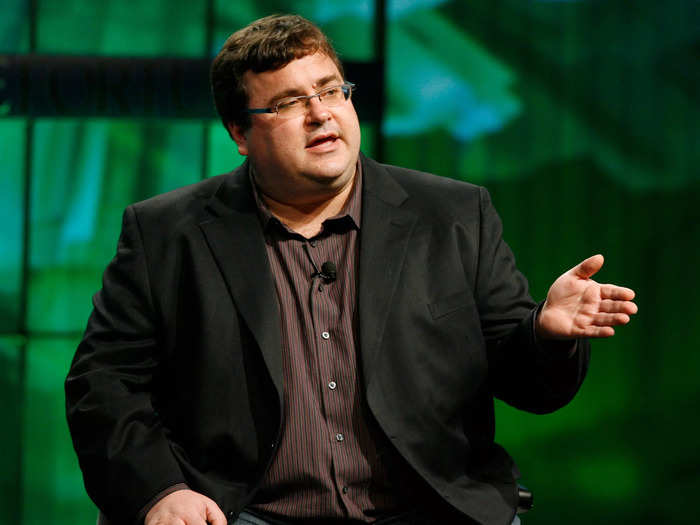
"Alongside your family, making, cultivating, and keeping close friendships may be your life's most important work," he said. "Our connections, and especially our friendships, are where we thrive and how we move forward and upward."
Hoffman talked about the role friendships have played in his personal and professional life, noting it was a friend who pushed him to start LinkedIn when he had initially planned to take a year off to travel instead.
"Friends will tell you not what you want to hear, but what you need to hear," Hoffman said.
He encouraged students to "make friendship a conscious practice" and to keep maintaining their relationships even as more commitments pile onto their plates.
"Realize that less time doesn't have to mean less friendship. Life is going to make a lot of demands on you, including many good things like partners, careers, hobbies, kids," he said. "Life is most fulfilling as a team sport because we achieve more and feel better together."
Intel CEO Patrick Gelsinger laid out what he calls the "Career M.A.P." while addressing this year's graduating class at Ohio State University.
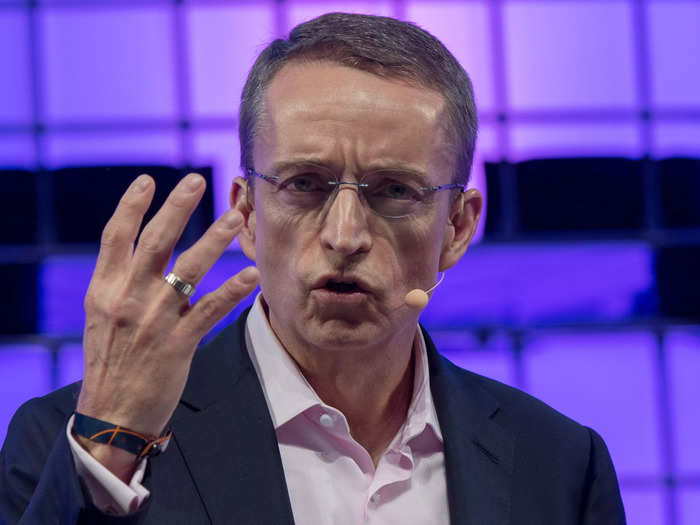
In Gelsinger's acronym, "M" stands for mentors.
"Find them. Listen to them," he said.
"A" stands for "audacious goals that are impossible until they're not."
"Write a mission statement. Live it," he said. "Ruthlessly prioritize your time against your mission."
"P" stands for passion.
"You will get angry, you will get fired, you will fail, you will lose the deal, you will be passed over for the promotion that you know you deserve, but aggressively embrace those moments and make them better because these failures are your opportunities to learn and grow," he said.
Gelsinger closed out his speech by telling graduates to "bring your whole self into the workplace."
"Any business is more likely to succeed when people bring their differences in thought, experiences, background, culture into the workplace. Diversity enriches and empowers high-performing teams and ultimately feeds innovation," he said.
Thasunda Brown Duckett, president and CEO of the Teachers Insurance and Annuity Association of America, told the graduating class of Mississippi's Jackson State University to learn from failures and successes alike.
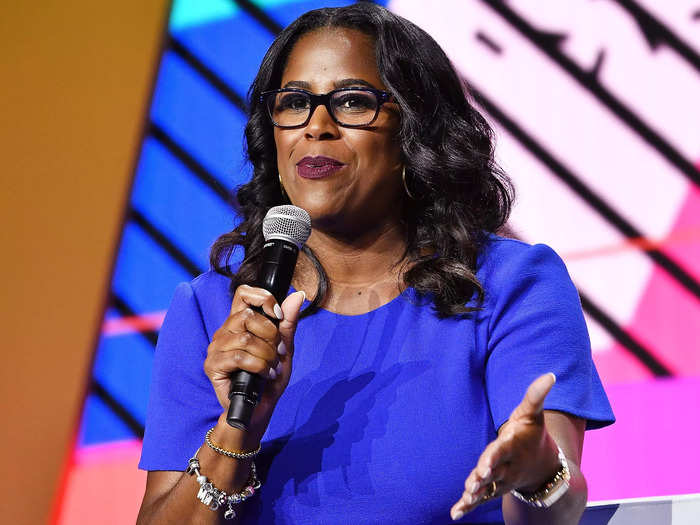
"It is important to understand and recognize that within your career when you take your shot, and yes, shoot your shot, there will be highs, and yes, there will be lows," she said. "Even then, ask the question, 'What is the lesson here?' Ask it even when it's painful. Be thankful for those learnings."
Brown Duckett, who was previously CEO of Chase Consumer Banking and just the third Black woman to be a Fortune 500 chief executive, told graduates to "make sure you see everyone."
"When I interned in the halls of corporate America, it was the secretaries, the janitors, and the cooks that exposed my melanin and gender to corporate America, and here I stand making history," she said.
Brown Duckett also spoke to the need to close wealth gaps affecting communities of color.
"It is our collective responsibility to do our part to break the cycle; we must right this economic injustice," she said. "If we don't, another generation of children will have to carry that burden."
While addressing graduates at North Carolina's High Point University, Kind Snacks founder Daniel Lubetzky spoke about what he calls the 'three C's': curiosity, courage, and compassion.
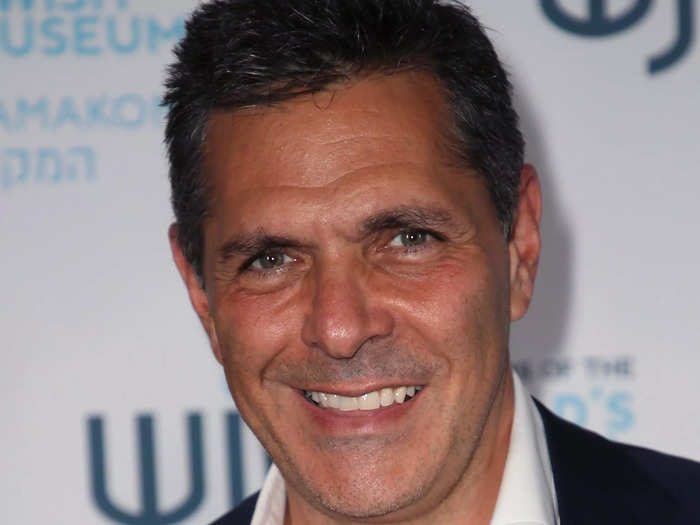
While addressing graduates at High Point University, Lubetzky spoke about what he calls the "three C's": curiosity, courage, and compassion.
On the subject of curiosity, he said, "The easy path is to surround yourself with those who tell you what you want to hear rather than what you need to hear. Opt instead for curiosity. Think critically about everything. Use news and data not to simply affirm but to inform your beliefs."
Regarding courage, Lubetzky said, "Develop the courage to have uncomfortable conversations — the only kind that will help all of us grow — the courage even to collaborate across lines of difference."
Lastly, Lubetzky spoke of compassion, saying, "Relate to others with compassion. Assume positive intent. Put yourself in other peoples' shoes. Be more forgiving."
He continued: "Practicing these skills will not only improve your relationships and our communities — it will also help you excel at life's pursuits. At Kind, we were able to build one crazy idea into an incredible company because of the culture we created — not just because of what we did, but how we did it."
Sybil Crum, vice president of marketing & commercial strategy for Disneyland Resort, told = graduates of Florida A&M University to bring their authentic selves to their endeavors.
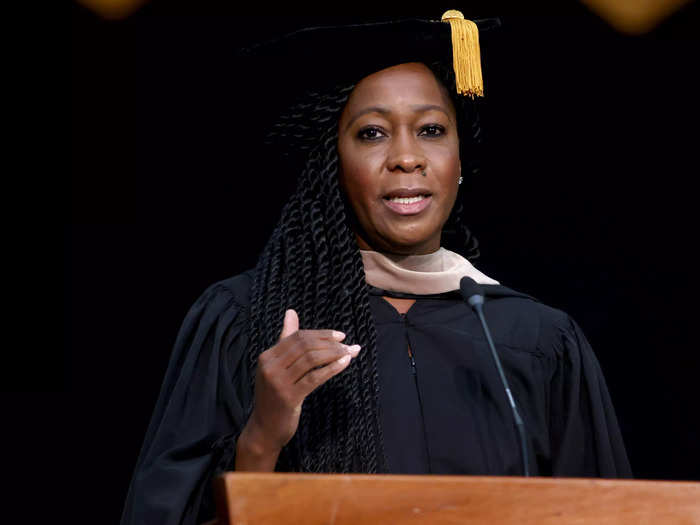
"Be yourself; lean into your own uniqueness. Don't compromise. If you do, you always will, and that's an extremely dangerous brand," she said. "I've been in brand marketing for over 25 years, but we're all a brand. Brands are built based on consistency. Decide now, the attributes that will define you and demonstrate them consistently."
Crum also talked about having courage and believing in yourself.
"Be courageous, and know that you have the right balance of hustle and heart to do anything that you need to do to succeed," she added. "Courage is required to do anything great. You have to constantly challenge and push yourself. I don't love public speaking, but I push myself every time to do it. You will have to push yourself."
In his commencement speech at Northeastern University in Massachusetts, Chobani CEO Hamdi Ulukaya, who is a Turkish immigrant, spoke about his early decision to hire refugees.
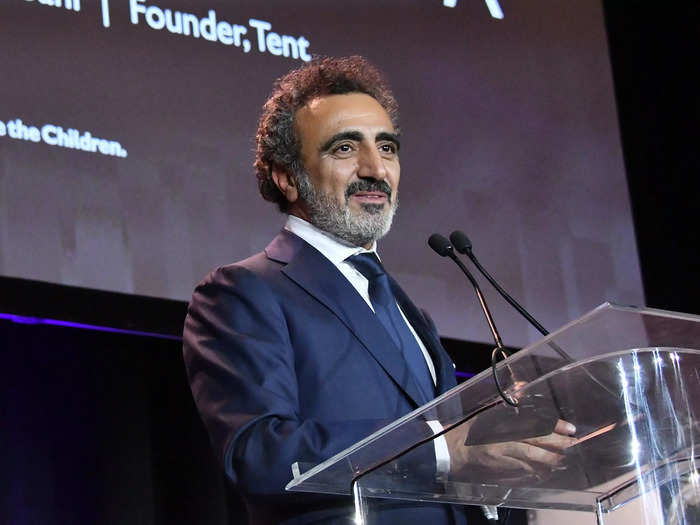
"I wanted to prove that business can be good to employees and the community while making a profit, and we did," he said. "As Chobani started to grow, we ran out of people to hire in our town. I had read there were refugees about an hour away looking for work. I said, 'Let's hire them.'"
In 2016, Ulukaya founded the Tent Partnership for Refugees, which aims to "mobilize the global business community to include refugees," including by pledging to hire refugees and support refugee entrepreneurs, according to its website.
"Today, we are the number one Greek yogurt brand in America, and we have hundreds of immigrants and refugees working for us in Idaho and upstate New York," he added. "Don't pity refugees; hire them. We know the minute a refugee has a job is the minute they stop being a refugee."
General Motors CFO Paul Jacobson spoke about the importance of sharing time and resources with others at Vanderbilt University's Owen Graduate School of Management in Tennessee.
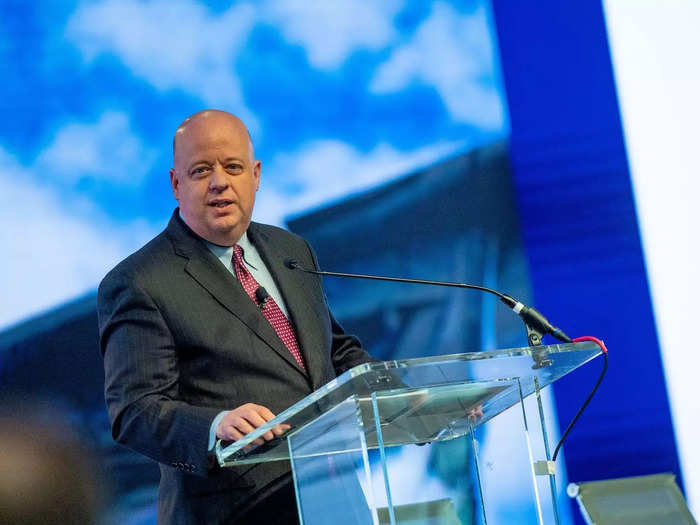
Jacobson also talked about taking chances, referencing his own experience leaving Delta Air Lines, where he was previously CFO.
"I urge you, and challenge you, to look for every opportunity to help others, who may one day come to you for guidance. Also, look for opportunities for personal and professional growth — always. I took a chance at my age to switch jobs and join General Motors, which is undergoing its most profound changes in more than a century," he said.
Jacobson also emphasized that graduates need to be quick on their feet in today's fast-changing business landscape.
"The world is changing quickly, more quickly every year," he said. "The currents you will face will include new technologies, new discoveries, new ideas — new ways of doing business. And those currents will move swiftly throughout your life and career. You have to be ready to adapt so you can navigate this changing world."
Delta Airlines CEO Ed Bastian told University of Georgia graduates that "character is not built by crisis, character is revealed in crisis."
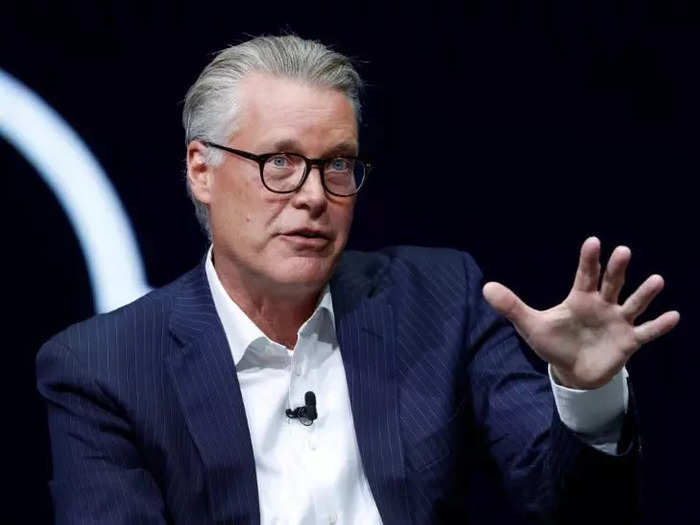
"Your actions will speak louder than any great new business pitch or innovative new technology breakthrough that you might be contemplating," he said. "Before any key decision, and there have been many, I asked myself what would that decision communicate about our values and the character of our company. Who you are is defined by what you do, not what you say."
He also highlighted the importance of preserving your reputation.
"The most important asset that you have is your good name, it's your brand, it's what you stand for," he said. "Only one person can destroy that. That person is you. Protect your name and reputation. It's the most important investment that you can make."
Snap CEO Evan Spiegel encouraged graduates at California's Otis College of Art and Design to be open to criticism and to consider ways to be environmentally friendly in the workplace.
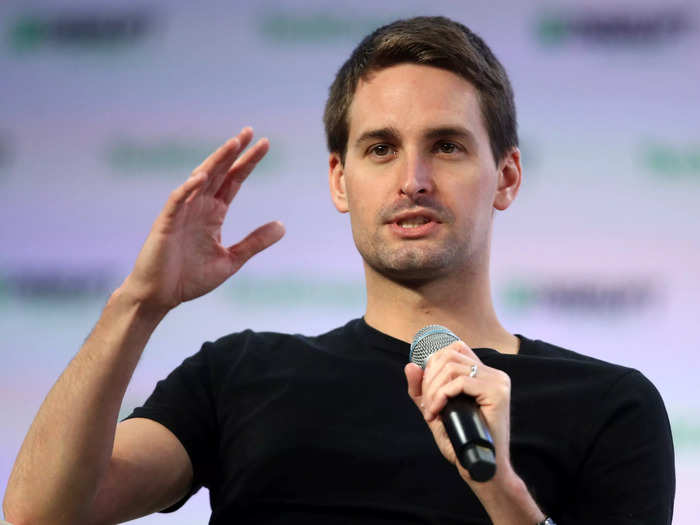
"Learning how to give and receive feedback is the foundation of personal growth," he said. "Just lean into your eagerness to become a good designer. That's one of the things I love about creativity. Good ideas can come from anywhere and our inexperience is an advantage because it helps us to see things differently. It helps us ask questions like, 'Does the world have to be this way?'"
KORA Organics CEO Miranda Kerr also addressed the graduates of Otis College, and spoke about the power of creativity.

"Never underestimate your power or your ability to touch someone's life," she said. "Through your creative talents, you have the ability to uplift and unite people. You also have the opportunity to inspire creativity in others, and that is one of the best gifts of all."
Spiegel and Kerr, who are married, also surprised the graduating class by paying off their student loans, which Otis College said represents the largest gift in its history.
Doug Bowser, president of Nintendo of America, drew comparisons between life and the popular Nintendo game Donkey Kong while delivering the commencement speech at the University of Utah.
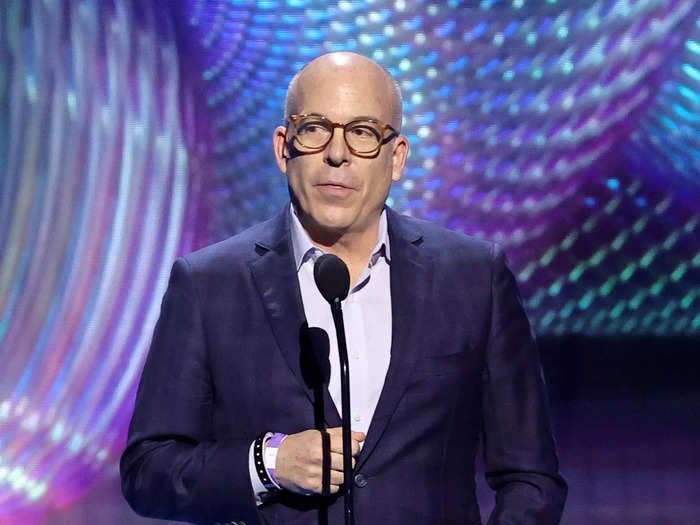
"I can assure you there will be barrels, but you'll learn how to clear them and you'll develop new capabilities," he said. "And when you've successfully reached the end of one challenge, you'll find another one waiting."
He described planning for the unexpected as the first "level" of his life, saying, "The goal in the end is not to get everything right every time. The goal is to try to learn, grow, and get better every time."
He then spoke about making the best of challenges.
"Succeeding is equally about the result achieved as it is an understanding of why you were successful," Bowser said. "Learn to be comfortable with the uncomfortable. Understanding that discomfort can and did make us better and it will make us better as we go forward."
Lastly, he talked about the importance of listening to others and considering their perspectives.
"Listening to other voices, other points of view, made me better," he said. "I started making better decisions. The organization became more inclusive, there was a stronger sense of belonging, and our culture got stronger."
READ MORE ARTICLES ON
Popular Right Now
Popular Keywords
Advertisement